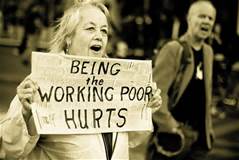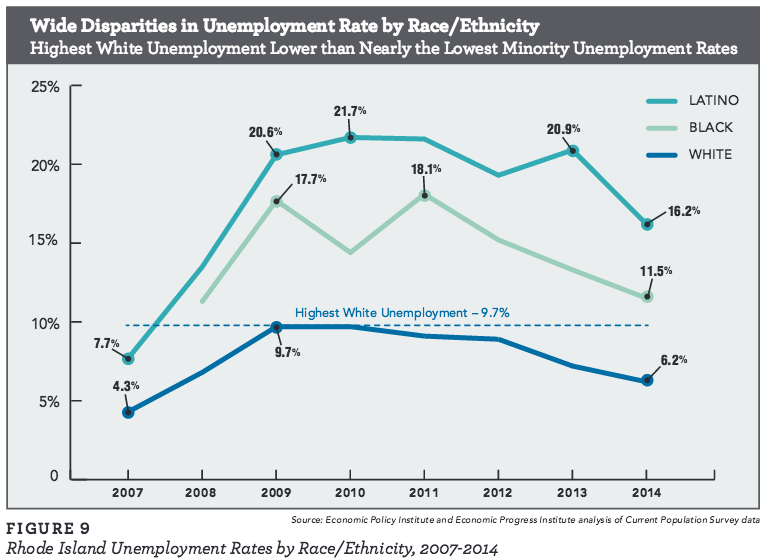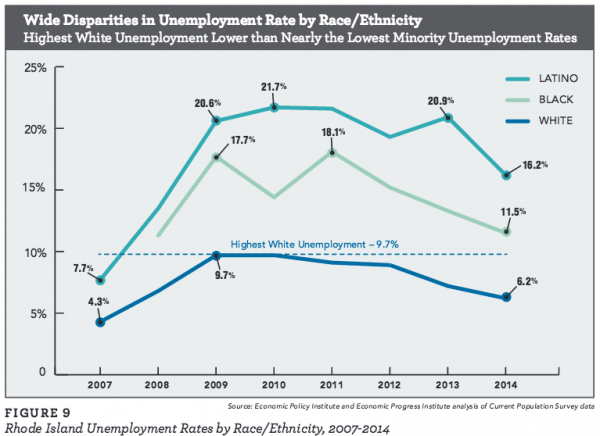 Since the publication of Ted Seidle’s letter to various federal agencies regarding the Raimondo pension policies, the operative question has been when will the feds come knocking on Smith Hill? It is clear that Raimondo is desperate to rebuild her reputation with unions, hence the push for the union-friendly RhodeWorks project. But why wait when Attorney General Kilmartin has the RICO Act at his disposal?
Since the publication of Ted Seidle’s letter to various federal agencies regarding the Raimondo pension policies, the operative question has been when will the feds come knocking on Smith Hill? It is clear that Raimondo is desperate to rebuild her reputation with unions, hence the push for the union-friendly RhodeWorks project. But why wait when Attorney General Kilmartin has the RICO Act at his disposal?
The website NOLO.com, a free resource for legal information, says the following of the federal Racketeer Influenced and Corrupt Organizations Act:
It allows prosecution and civil penalties for racketeering activity performed as part of an ongoing criminal enterprise. Such activity may include illegal gambling, bribery, kidnapping, murder, money laundering, counterfeiting, embezzlement, drug trafficking, slavery, and a host of other unsavory business practices. To convict a defendant under RICO, the government must prove that the defendant engaged in two or more instances of racketeering activity and that the defendant directly invested in, maintained an interest in, or participated in a criminal enterprise affecting interstate or foreign commerce.
(1) racketeering activity means
(A) any act or threat involving murder, kidnapping, gambling, arson, robbery, bribery, extortion, dealing in obscene matter, or dealing in a controlled substance or listed chemical (as defined in section 102 of the Controlled Substances Act), which is chargeable under State law and punishable by imprisonment for more than one year;
(B) any act which is indictable under any of the following provisions of title 18, United States Code: Section 201 (relating to bribery), section 224 (relating to sports bribery), sections 471, 472, and 473 (relating to counterfeiting), section 659 (relating to theft from interstate shipment) if the act indictable under section 659 is felonious, section 664 (relating to embezzlement from pension and welfare funds), sections 891894 (relating to extortionate credit transactions), section 1028 (relating to fraud and related activity in connection with identification documents), section 1029 (relating to fraud and related activity in connection with access devices), section 1084 (relating to the transmission of gambling information), section 1341 (relating to mail fraud), section 1343 (relating to wire fraud), section 1344 (relating to financial institution fraud), section 1425 (relating to the procurement of citizenship or nationalization unlawfully), section 1426 (relating to the reproduction of naturalization or citizenship papers), section 1427 (relating to the sale of naturalization or citizenship papers), sections 14611465 (relating to obscene matter), section 1503 (relating to obstruction of justice), section 1510 (relating to obstruction of criminal investigations), section 1511 (relating to the obstruction of State or local law enforcement), section 1512 (relating to tampering with a witness, victim, or an informant), section 1513 (relating to retaliating against a witness, victim, or an informant), section 1542 (relating to false statement in application and use of passport), section 1543 (relating to forgery or false use of passport), section 1544 (relating to misuse of passport), section 1546 (relating to fraud and misuse of visas, permits, and other documents), sections 15811592 (relating to peonage, slavery, and trafficking in persons).,[1] section 1951 (relating to interference with commerce, robbery, or extortion), section 1952 (relating to racketeering), section 1953 (relating to interstate transportation of wagering paraphernalia), section 1954 (relating to unlawful welfare fund payments), section 1955 (relating to the prohibition of illegal gambling businesses), section 1956 (relating to the laundering of monetary instruments), section 1957 (relating to engaging in monetary transactions in property derived from specified unlawful activity), section 1958 (relating to use of interstate commerce facilities in the commission of murder-for-hire), section 1960 (relating to illegal money transmitters), sections 2251, 2251A, 2252, and 2260 (relating to sexual exploitation of children), sections 2312 and 2313 (relating to interstate transportation of stolen motor vehicles), sections 2314 and 2315 (relating to interstate transportation of stolen property), section 2318 (relating to trafficking in counterfeit labels for phonorecords, computer programs or computer program documentation or packaging and copies of motion pictures or other audiovisual works), section 2319 (relating to criminal infringement of a copyright), section 2319A (relating to unauthorized fixation of and trafficking in sound recordings and music videos of live musical performances), section 2320 (relating to trafficking in goods or services bearing counterfeit marks), section 2321 (relating to trafficking in certain motor vehicles or motor vehicle parts), sections 23412346 (relating to trafficking in contraband cigarettes), sections 242124 (relating to white slave traffic), sections 175178 (relating to biological weapons), sections 229229F (relating to chemical weapons), section 831 (relating to nuclear materials),
(C) any act which is indictable under title 29, United States Code, section 186 (dealing with restrictions on payments and loans to labor organizations) or section 501 (c) (relating to embezzlement from union funds),
(D) any offense involving fraud connected with a case under title 11 (except a case under section 157 of this title), fraud in the sale of securities, or the felonious manufacture, importation, receiving, concealment, buying, selling, or otherwise dealing in a controlled substance or listed chemical (as defined in section 102 of the Controlled Substances Act), punishable under any law of the United States,
(E) any act which is indictable under the Currency and Foreign Transactions Reporting Act,
(F) any act which is indictable under the Immigration and Nationality Act, section 274 (relating to bringing in and harboring certain aliens), section 277 (relating to aiding or assisting certain aliens to enter the United States), or section 278 (relating to importation of alien for immoral purpose) if the act indictable under such section of such Act was committed for the purpose of financial gain, or
(G) any act that is indictable under any provision listed in section 2332b (g)(5)(B) [Emphasis added]
So the question then becomes whether Raimondo and her associates have engaged in this behavior. And there are plenty of reasons to suspect so.
The first document to consult is one commissioned by the American Federation of Teachers, the Roosevelt Institute, the Refund America Project, and the Haas Institute titled All That Glitters is Not Gold: An Analysis of US Public Pension Investments in Hedge Funds. While the document does not specifically study Rhode Island, the lessons are applicable here and it says the following:
Key Findings: Hedge funds were responsible for an estimated $8 billion in lost investment revenue
Our findings suggest that these 11 pension funds’ hedge fund investments failed to deliver any significant benefits to the pension funds studied. Specifically, we found that:
- Hedge fund net return rates lagged behind the total fund for nearly three-quarters of the total years reviewed, costing the group of pension funds an estimated $8 billion in lost investment revenue.
Despite lagging performance, hedge fund managers collected an estimated $7.1 billion in fees from the same pension funds over the period reviewed; on average, our estimates suggest that these pension funds paid 57 cents in fees to hedge fund managers for every dollar of net return to the pension fund.- Whereas hedge fund managers promise uncorrelated returns and downside protection, all of the 11 pension funds reviewed demonstrated significant correlation between hedge fund and total fund performance.
Recommendations:
Considering the implications of these findings for pension fund trustees, participants and consultants, we recommend that public pension funds currently invested in hedge funds immediately take the following steps:
– Conduct an asset allocation review to examine less costly and more effective diversification approaches. The review should include a complete analysis of past net performance of their hedge fund investments, as well as a comparison with low-fee alternatives.
– Require full and public disclosure from hedge fund managers and consultants, including complete disclosure of historical investment management and incentive (carry or profit-sharing) fees captured by hedge fund managers for the duration of their fund’s investments. Pension funds should also consider developing legislative policies requiring this level of disclosure. [Emphasis in original]
Before moving forward, it is worthwhile to recall here that the Governor has previously invoked a host of proprietary information reasons for not providing full disclosure of matters regarding the pension fund. In this sense, this document not only flies in the face of that logic, it is recommending things under the auspices of full disclosure laws that the Governor has said do not apply in this situation. As such, Attorney General Kilmartin could investigate further on this issue and hold people liable for failing to obey public disclosure laws.
Also notable is that, while the report does not deal specifically with the Rhode Island pension plan, it does discuss shortcomings of Daniel Loeb’s Third Point Capital, one of the firms the Rhode Island pension plan was invested in.
Here are further findings of this paper:
Indeed, our findings suggest that all 11 pension funds included in our analysis would have performed better having never invested in hedge funds in the first place. This has important implications not only for pension fund trustees, who have a fiduciary duty to prudently seek investments that provide the highest long-term returns for the lowest cost to the pension fund, but also for public employees, public employee unions, retirees and taxpayers, all of whom should be concerned about this overall negative impact that hedge funds are exerting on public pension funds. [Emphasis in original]
With that in mind, consider for a moment this information from Ted Seidle’s first audit of the pension, Rhode Island Public Pension Reform: Wall Street’s License to Steal:
[A] significant portion of the Treasurer’s wealth and income relates to shares she owns in two illiquid, opaque venture capital partnerships she formerly managed at Point Judith Capital—one of which she convinced the state to invest in on different, less favorable terms. Unlike the state which paid millions for its shares in one of the Point Judith funds, the Treasurer was granted shares in both of the venture capital funds for free… In a letter to the Rhode Island Ethics Commission requesting an advisory opinion concerning whether she had taken sufficient steps to avoid conflicts of interest relative to her ties to a venture capital fund in which the state had made an investment, the Treasurer represented that in 2007 the State Investment Commission entered into a ten-year contract with Point Judith in which the State agreed to invest $5 million dollars in the Point Judith II fund. She also represented that the State’s investment in the fund was passive, meaning that after signing the contract with Point Judith and making its investment commitment, the State Investment Commission had no say in the fund’s ongoing management or investment decisions.
The Treasurer notably failed to mention in her letter to the Ethics Commission that the state had not merely entered into a ten-year contract with Point Judith. Rather, the state was a limited partner in a fund managed by Point Judith as General Partner and, as a limited partner the state may have broad rights in the fund’s ongoing management, or investment decisions, the exercise of which may conflict with her rights and interests.
Further, as a Point Judith insider, she, or other investors, may have been granted special rights more favorable than those granted to the state, including special withdrawal rights; rights to receive reports from the partnership on a more frequent basis or that include information not provided to other limited partners; rights to receive reduced rates of the incentive allocation and management fee; rights to receive a share of the incentive allocation, management fee or other amounts earned by the general partner or its affiliates. If true, the Treasurer may literally be profiting at the expense of the state…Regardless, the characterization of the investment in the Point Judith II Fund as merely a ten-year contract in a passive investment as to which the state had no say is neither complete nor accurate.
In order to create further separation from her investment in the Point Judith funds, the Treasurer represented that prior to assuming office she placed all her right, title and interest in both funds into a blind trust designated as the Raimondo Blind Trust. While a blind trust may be of value in certain circumstances, where, as here, the sole assets of the trust, i.e. the shares in the two Point Judith funds, are illiquid, i.e. cannot be sold for a decade, no protection is afforded. The purpose of the blind trust is to keep the beneficiary unaware of the specific assets of the trust, so as to avoid a conflict of interest between the beneficiary and the investments.
In this case, the Treasurer knows precisely the assets held in the Blind Trust during her entire term as Treasurer and continues to enjoy cash distributions related to the Point Judith funds—payments exponentially greater than her state salary in the past year— and payments related to shares she was granted for free.
Rather than provide protection against conflicts, here the blind trust serves to enable the conflict of interest involving ERSRI to persist throughout her term.
Most important, in connection with granting the Advisory Opinion, the Treasurer did not indicate, and Ethics Commission did not consider, that the Treasurer would subsequently refuse to disclose to the public information regarding ERSRI’s investment in Point Judith II.
Ironically, the Blind Trust scheme she proposed to the Ethics Commission coupled with her nondisclosure policy regarding the Point Judith II fund, has resulted in only the public being “blind” as to the Point Judith II fund.
In short, in our opinion, this arrangement constitutes a misuse of the blind trust device. [Emphasis added]
This presents a host of not just interest conflicts but potential illegal market manipulation committed in totality on the state level. If Raimondo manipulated the public in portraying the investments of the pension in a fashion to personally benefit her, that would constitute a serious malfeasance for investigation by the Attorney General. Furthermore, as this matter has involved court proceedings in a variety of cases, there could be potential perjury charges brought.
We will continue to explore these documents and bring highlights in further reporting.
EDITORIAL NOTE: Following this report, it was indicated by readers that the aforementioned RICO Act is the federal as opposed the Rhode Island definition of the law. It is worth noting that, due to the interstate and international nature of the pension fund investments, the federal definition is still applicable and relevant. That law, Rhode Island General Laws Title 7 Chapter 15, says the following:
§ 7-15-1 Definitions. – (a) “Enterprise” includes any sole proprietorship, partnership, corporation, association, or other legal entity, and any union or group of individuals associated for a particular purpose although not a legal entity.
(b) “Person” includes any individual or entity capable of holding a legal or beneficial interest in property.
(c) “Racketeering activity” means any act or threat involving murder, kidnapping, gambling, arson in the first, second, or third degree, robbery, bribery, extortion, larceny or prostitution, or any dealing in narcotic or dangerous drugs which is chargeable as a crime under state law and punishable by imprisonment for more than one year, or child exploitations for commercial or immoral purposes in violation of § 11-9-1(b) or (c) or § 11-9-1.1.
(d) “Unlawful debt” means a debt incurred or contracted in an illegal gambling activity or business or which is unenforceable under state law in whole or in part as to principal or interest because of the law relating to usury.
§ 7-15-2 Prohibited activities. – (a) It is unlawful for any person who has knowingly received any income derived directly or indirectly from a racketeering activity or through collection of an unlawful debt, to directly or indirectly use or invest any part of that income, or the proceeds of that income in the acquisition of an interest in, or the establishment or operation of any enterprise.
(b) It is unlawful for any person through a racketeering activity or through collection of an unlawful debt to directly or indirectly acquire or maintain any interest in or control of any enterprise.
(c) It is unlawful for any person employed by or associated with any enterprise to conduct or participate in the conduct of the affairs of the enterprise through racketeering activity or collection of an unlawful debt.
(d) Provided, that a purchase of securities on the open market for purposes of investment and without the intention of controlling or participating in the control of the issuer, or of assisting another to do so, is not unlawful under this section if the securities of the issuer held by the purchaser, the members of his immediate family, and his or her or their accomplices in a racketeering activity or the collection of an unlawful debt after the purchase do not amount in the aggregate to one percent (1%) of the outstanding securities of any one class, and do not, either in law or in fact, confer the power to elect one or more directors of the issuer.
…
§ 7-15-7 Investigative demands. – (a) Issuance. Whenever the attorney general has reasonable cause to believe that any person or enterprise has knowledge or is in possession, custody, or control of any documentary material pertinent to an investigation of a possible violation of this chapter, he or she may, prior to and/or following the institution of a civil or criminal proceeding on the violation, issue in writing and cause to be served upon the person or enterprise a civil investigatory demand by which he or she may:
(1) Compel the attendance of the person and require him or her to submit to examination and give testimony under oath; and/or
(2) Require the production of documentary material pertinent to the investigation for inspection and/or copying; and/or
(3) Require answers under oath to written interrogatories.
(b) Power to issue. The power to issue investigative demands does not abate or terminate by reason of the bringing of any action or proceeding under this chapter. The attorney general may issue successive investigatory demands to the same person in order to obtain additional information pertinent to an ongoing investigation.
(c) Confidentiality. In the event the attorney general initiates a civil investigatory demand prior to a criminal indictment for violation of this chapter, then the commencement, contents, and results of the civil investigatory demand is held in the strictest confidence by the attorney general and shall remain so until the time that a civil action is commenced, indictment for violation of this chapter returned, or removal of the confidentiality is ordered by a justice of the superior court.
(d) Contents of investigative demand. Each investigatory demand shall:
(1) State the nature of the conduct constituting the alleged racketeering violation of this chapter which is under investigation and the provisions of law applicable to the conduct;
(2) Prescribe a reasonable return date no less than twenty (20) days from the date of the investigative demand, provided that an earlier date may be prescribed under compelling circumstances;
(3) Specify the time and place at which the person is to appear and give testimony, produce documentary material, and furnish answers to interrogatories, or do any or a combination of the above;
(4) Identify the custodian to whom any documentary material is to be made available;
(5) Describe by class any documentary material to be produced with such definiteness and certainty as to permit the material to be fairly identified;
(6) Contain any interrogatories to which written answers under oath are required; and
(7) Advise in writing the person upon whom the demand is served that the material or statements may constitute a basis for prosecution against the person.
(e) Prohibition against unreasonable demand. No investigatory demand shall:
(1) Contain any requirement which would be unreasonable or improper if contained in a subpoena or a subpoena duces tecum issued by a court of this state; or
(2) Require the disclosure of any material which would be privileged from disclosure if demanded by a subpoena or a subpoena duces tecum issued by a court of this state.
(f) Service of investigative demand.
(1) An investigative demand may be served by:
(i) Delivering an executed copy to the person to be served, or if the person is not a natural person, to any partner, executive officer, managing agent, general agent, or to any agent of the person authorized by appointment or by law to receive service of process on behalf of the person;
(ii) Delivering an executed copy to the principal office or place of business of the person to be served; or
(iii) Mailing by certified mail, return receipt requested, an executed copy addressed to the person to be served, or if the person is not a natural person, addressed to its principal office or place of business in this state, or if it has none in this state, to its principal office or place of business.
(2) A verified return by the individual serving any demand or petition setting forth the manner of service is prima facie proof of service. In the case of service by certified mail, the return shall be accompanied by the return post office receipt of delivery of the demand.
(g) Authorization to examine. The examination of all persons pursuant to this section shall be conducted by the attorney general or a representative designated in writing by him or her, before an officer authorized to administer oaths in this state. The statements made shall be taken down stenographically or by a sound recording device and shall be transcribed.
(h) Rights of persons served with investigative demands. Any person required to attend and give testimony or to submit documentary material pursuant to this section is entitled to retain, or, on payment of lawfully prescribed cost, to procure, a copy of any document he or she produces and of his or her own statements as transcribed. Any person compelled to appear under a demand for oral testimony pursuant to this section may be accompanied, represented, and advised by counsel. Counsel may advise the person in confidence, either upon the request of the person or upon counsel’s own initiative, with respect to any question asked of the person. The person or counsel may object on the record to any question, in whole or in part, and shall briefly state for the record the reason for the objection. An objection may properly be made, received, and entered upon the record when it is claimed that the person is entitled to refuse to answer the question on grounds of any constitutional or other legal right or privilege, including the privilege against self incrimination. The person shall not otherwise object to or refuse to answer any question, and shall not by him or herself or through counsel interrupt the oral examination. If the person refuses to answer any question, the attorney general may petition the superior court for an order compelling the person to answer the question. The information and materials supplied to the attorney general pursuant to an investigative demand are not permitted to become public or be disclosed by the attorney general or his or her employees beyond the extent necessary for legitimate law enforcement purposes pursuant to this chapter.
(i) Witness expenses. All persons served with an investigative demand, other than those persons whose conduct or practices are being investigated or any officer, director, or person in the employment of the person under investigation, are paid the same fees and mileage as paid witnesses in the courts of this state. No person is excused from attending the inquiry pursuant to the mandate of an investigative demand or from giving testimony, or from producing documentary material or from being required to answer questions on the ground of failure to tender or pay a witness fee or mileage, unless demand for the witness fee or mileage is made at the time testimony is about to be taken and unless payment of the witness fee or mileage is not made.
(j) Custody of documents. (1) The attorney general shall designate, from within the department of attorney general, an investigator to serve as racketeer document custodian and any racketeering investigators that he or she determines are necessary to serve as deputies to that officer.
(2) Any person on whom any demand issued under this section has been served shall make the material available for inspection and copying or reproduction to the custodian designated in the demand at the principal place of business of the person, or at any other place that the custodian and the person subsequently agree and prescribe in writing or as the court may direct, pursuant to this section on the return date specified in the demand, or on any later date that the custodian may prescribe in writing. The person may, upon written agreement between the person and the custodian, substitute copies of all or any part of the material for originals of the materials.
(3) The custodian to whom any documentary material is delivered shall take physical possession of it, and is responsible for its use and for its return pursuant to this chapter. The custodian may cause the preparation of any copies of the documentary material that are required for official use under regulations which are promulgated by the attorney general. While in the possession of the custodian, no material produced shall be available for examination, without the consent of the person who produced the material, other than for legitimate law enforcement purposes pursuant to this chapter. Under any reasonable terms and conditions that the attorney general prescribes, documentary material while in the possession of the custodian shall be available for examination by the person who produced the material or any authorized representatives of the person.
(4) Whenever any attorney has been designated to appear on behalf of the state before any court or grand jury in any case or proceeding involving any alleged violation of this chapter, the custodian may deliver to the attorney any documentary material in the possession of the custodian that the attorney determines to be required for use in the presentation of the case or proceeding on behalf of the state. Upon the conclusion of any case or proceeding, the attorney shall return to the custodian any documentary material withdrawn which has not passed into the control of the court or grand jury through its introduction into the record of the case or proceeding.
(5) Upon the completion of the investigation for which any documentary material was produced under this chapter, and any case or proceeding arising from the investigation, the custodian shall return to the person who produced the material all the material, other than copies of it made by the custodian pursuant to this section, which has not passed into the control of any court or grand jury through its introduction into the record of the case or proceeding.
(6)(i) When any documentary material has been produced by any person under this chapter, and no case or proceeding arising from it has been instituted within a reasonable time after completion of the examination and analysis of all evidence assembled in the course of the investigation, the person is entitled, upon written demand made upon the custodian, to the return of all documentary material. Provided, that no documentary material shall be tendered, delivered, or made available to any other state, federal, or municipal agency.
(ii) Anyone who knowingly and willfully violates the provision of this subdivision shall, in addition to any civil liability, be punished by a fine of not more than five hundred dollars ($500) and/or imprisonment for no longer than one year.
(7) In the event of the death, disability, or separation from service of the custodian of any documentary material produced under any demand issued under this chapter or the official relief of the custodian from responsibility for the custody and control of the material, the attorney general shall promptly designate another racketeering investigator to serve as custodian of the documentary material, and transmit notice in writing to the person who produced the material as to the identity and address of the designated successor. Any designated successor has all duties and responsibilities as to the materials imposed by this chapter on his or her predecessor in office as to them, except that he or she is not responsible for any default or dereliction which occurred before his or her designation as custodian.
(k) Enforcement of investigative demands for production. Whenever any person fails to comply with any civil investigative demand served upon him or her under this chapter requiring the production of documentary material, or whenever satisfactory copying or reproduction of that material cannot be done, and the person refuses to surrender the material, the attorney general may file in the superior court and serve upon the person a petition for an order of the court for the enforcement of the demand.
(l) Refusal of persons served to testify or produce documents. Whenever any natural person neglects or refuses to attend and give testimony or to answer any lawful inquiry or to produce documentary material if in his or her power to do so in obedience to an investigative demand served upon him or her under this chapter, he or she may be adjudged in civil contempt by the superior court until any time that he or she purges him or herself of contempt by testifying, producing documentary material or presenting written answers as ordered. Any natural person who commits perjury or false swearing in response to an investigative demand pursuant to this section is punishable pursuant to the provisions of chapter 33 of title 11.
(m) Motion to quash. Within twenty (20) days after the service of an investigatory demand upon any person, or at any time before the return date specified in the demand, whichever period is shorter, the person served may file in the superior court and serve upon the custodian a petition for an order of the court modifying or setting aside the demand. The time allowed for compliance with the demand in whole or in part as deemed proper and ordered by the court shall not run during the pendency of the petition in the court. The petition shall specify each ground upon which the petitioner relies in seeking relief, and may be based on any failure of the demand to comply with the provisions of this chapter or on any constitutional or other legal right or privilege of the person.
(n) Right of persons producing documents. At any time during which any custodian is in custody or control of any documentary material delivered by any person in compliance with an investigatory demand, the person may file in the superior court and serve upon the custodian a petition for an order of the court requiring the performance by the custodian of any duty imposed upon him or her by this chapter.
(o) Duty to testify. (1) If, in any investigation brought by the attorney general pursuant to this section, any individual refuses to attend or to give testimony or to produce documentary material or to answer a written interrogatory in obedience to an investigative demand or under order of court on the ground that the testimony or material required of him or her may tend to incriminate him, that person may be ordered to attend and to give testimony or to produce documentary material or to answer the written interrogatory, or to do an applicable combination of these. The above order is an order of court given after a hearing in which the attorney general has established a need for the grant of immunity, as subsequently provided.
(2) The attorney general may petition the presiding justice of the superior court for an order as described in subdivision (1) of this subsection. The petition shall set forth the nature of the investigation and the need for the immunization of the witness.
(3) Compelled testimony shall not be used against the witness as evidence in any criminal proceedings against him or her in any court. However, the grant of immunity does not immunize the witness from civil liability arising from the transactions about which testimony is given, and he or she may nevertheless be prosecuted or subjected to penalty or forfeiture for any perjury, false swearing, or contempt committed in answering or in failing to answer or in producing evidence or failing to do so in accordance with the order. If a person refuses to testify after being granted immunity from prosecution and after being ordered to testify, he or she may be adjudged in civil contempt by the superior court until any time that he or she purges him or herself of contempt by testifying, producing documentary material or presenting written answers as ordered. The above does not prevent the attorney general from instituting other appropriate contempt proceedings against any person who violates any of the above provisions.



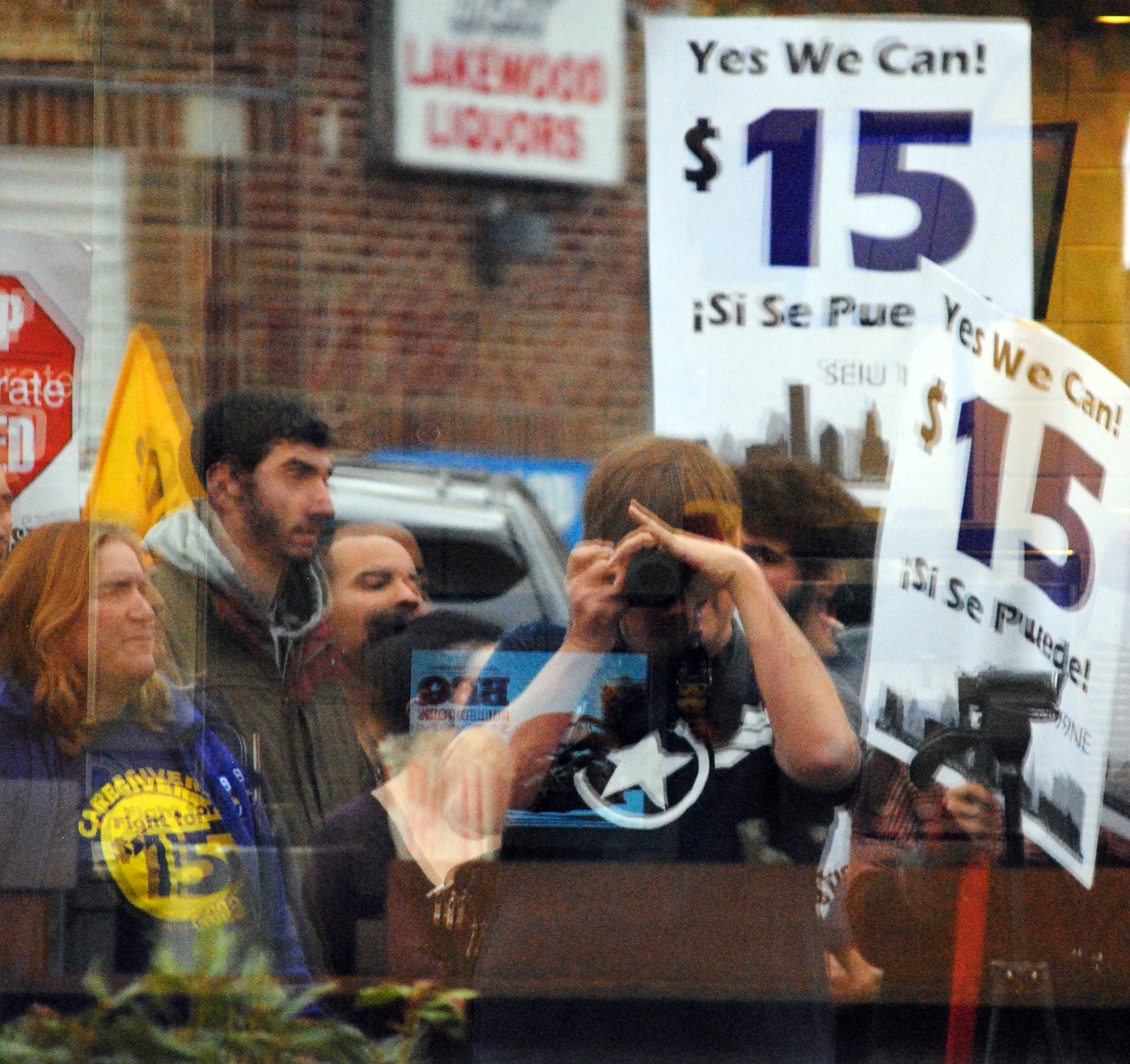
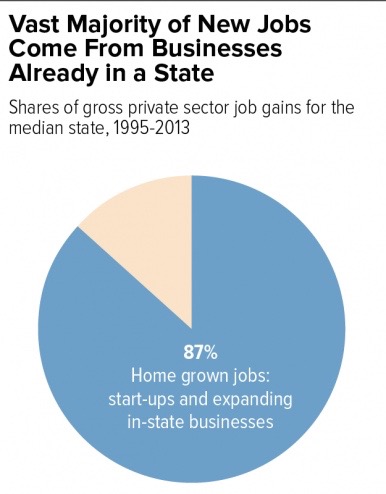
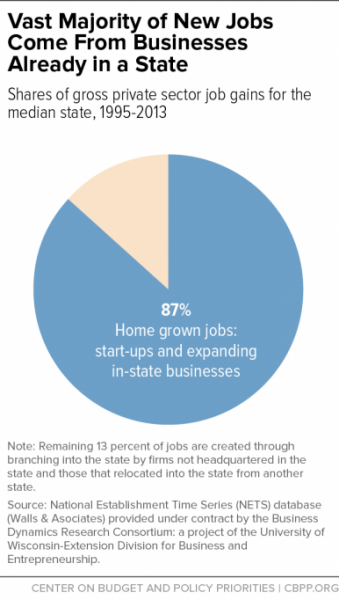 A new report calls into question many of the job growth strategies being pursued and implemented by our state leaders. “To create jobs and build strong economies,” say economists Michael Mazerov and Michael Leachman in their new report, “states should focus on producing more home-grown entrepreneurs and on helping startups and young, fast-growing firms already located in the state to survive and to grow ― not on cutting taxes and trying to lure businesses from other states.”
A new report calls into question many of the job growth strategies being pursued and implemented by our state leaders. “To create jobs and build strong economies,” say economists Michael Mazerov and Michael Leachman in their new report, “states should focus on producing more home-grown entrepreneurs and on helping startups and young, fast-growing firms already located in the state to survive and to grow ― not on cutting taxes and trying to lure businesses from other states.”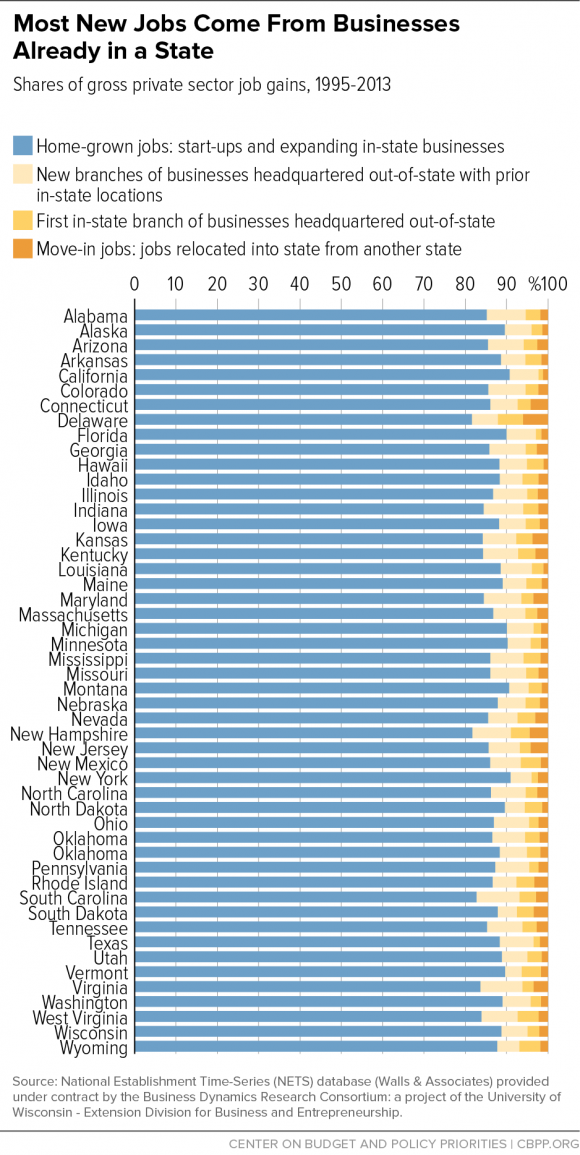



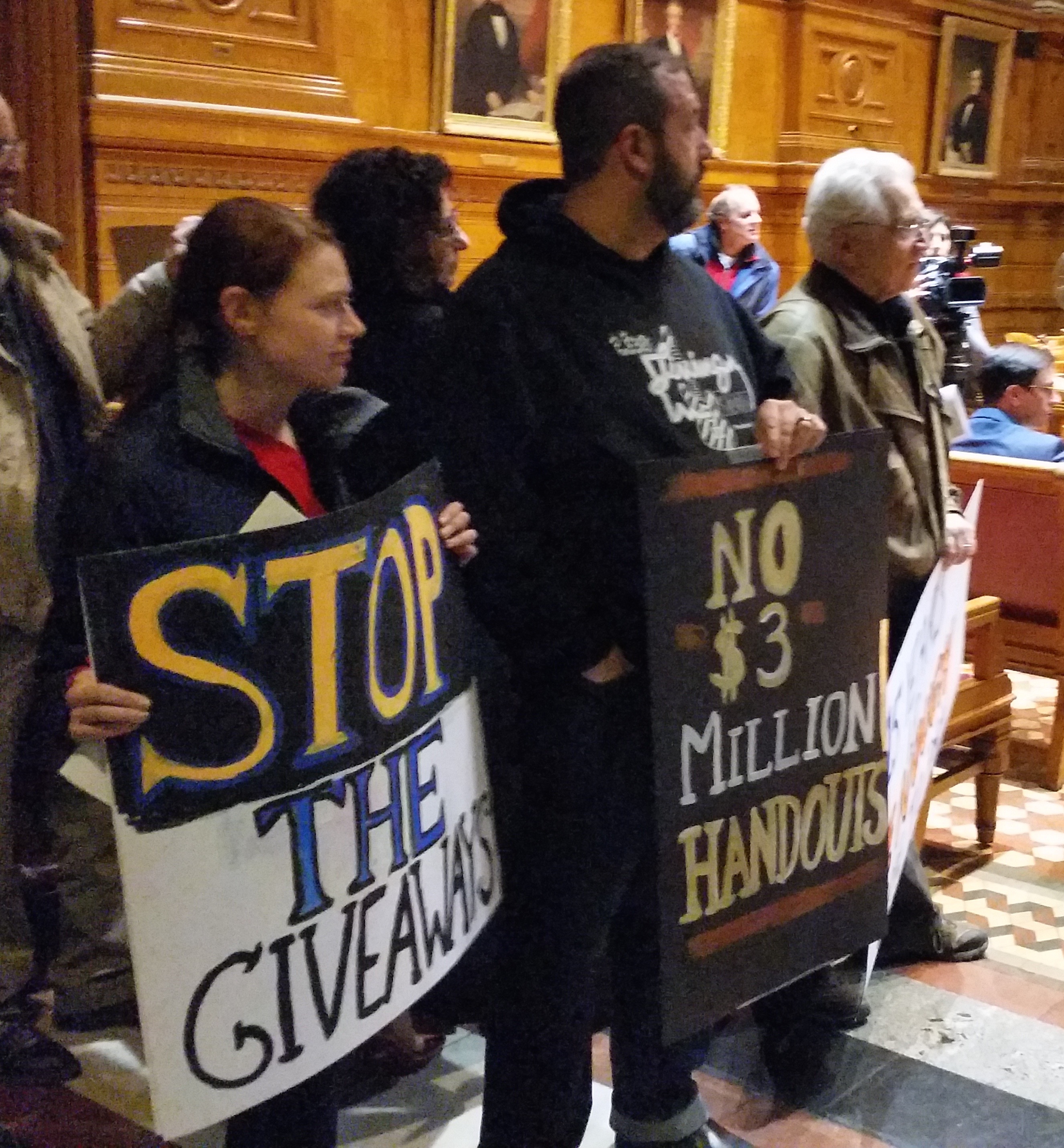
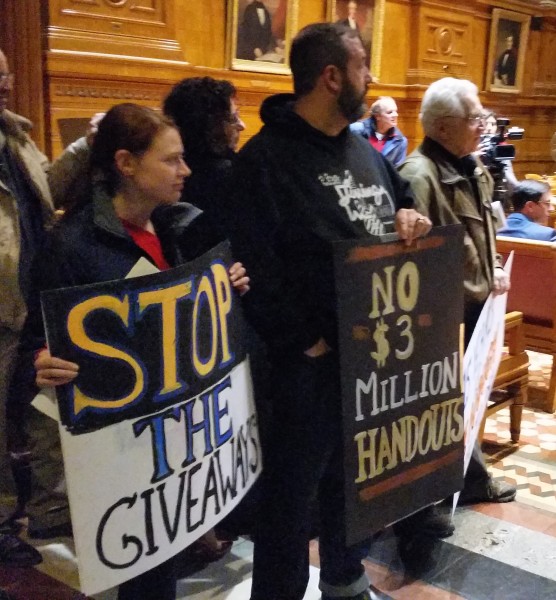 The Providence City Council Finance Committee unanimously rejected the proposed extension of the tax stabilization agreement (TSA) for the property at
The Providence City Council Finance Committee unanimously rejected the proposed extension of the tax stabilization agreement (TSA) for the property at 

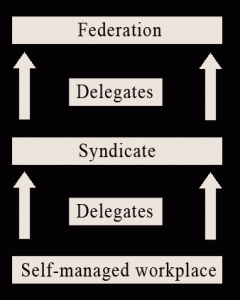

 Though the big news was that Governor Gina Raimondo announced that she would be calling of an increase in the Earned Income Tax Credit (EITC) and the minimum wage when she presents her budget during the State of the State address Tuesday evening, the press conference where this was announced was to call attention to VITA, a program to help low and modest-income Rhode Islanders file their taxes and apply for tax credits like the EITC. Raimondo said that if the budget permits, she will push that rate higher.
Though the big news was that Governor Gina Raimondo announced that she would be calling of an increase in the Earned Income Tax Credit (EITC) and the minimum wage when she presents her budget during the State of the State address Tuesday evening, the press conference where this was announced was to call attention to VITA, a program to help low and modest-income Rhode Islanders file their taxes and apply for tax credits like the EITC. Raimondo said that if the budget permits, she will push that rate higher.

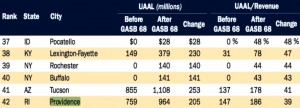
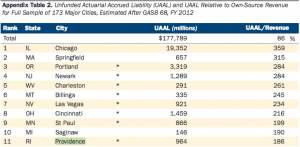

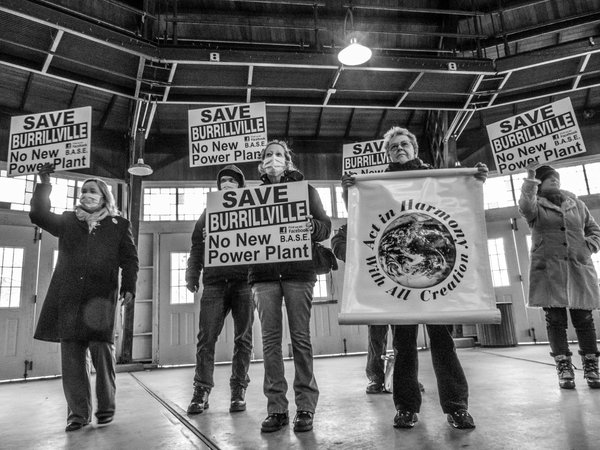


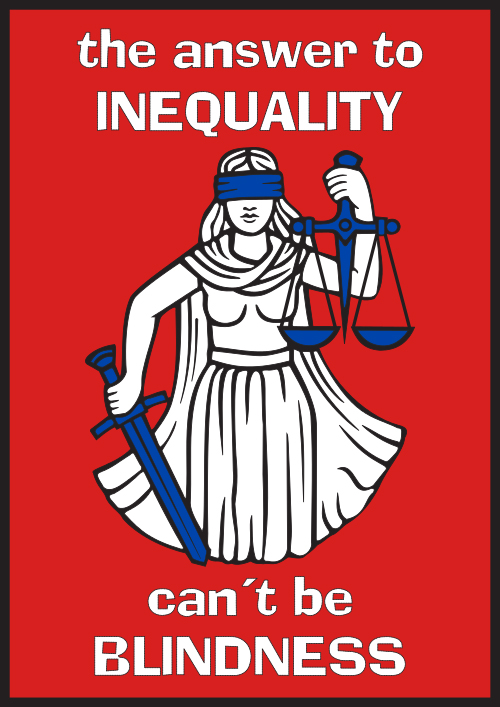
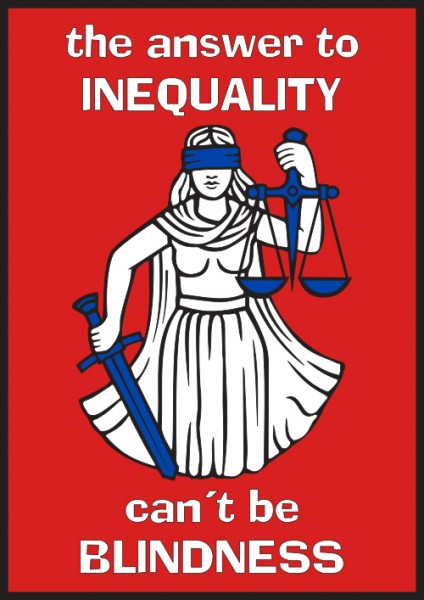 At the 2016 Rhode Island Small Business Economic Summit (Summit), Grafton H. “Cap” Wiley IV told Governor Gina Raimondo, House Speaker Nicholas Mattiello and a room full of government officials and small business owners that “it would be great if we had enough revenue to get rid of the estate tax” or if we don’t have enough revenue, “look at an increase in the exemption.”
At the 2016 Rhode Island Small Business Economic Summit (Summit), Grafton H. “Cap” Wiley IV told Governor Gina Raimondo, House Speaker Nicholas Mattiello and a room full of government officials and small business owners that “it would be great if we had enough revenue to get rid of the estate tax” or if we don’t have enough revenue, “look at an increase in the exemption.” So why would Mattiello be so eager to look at an idea that amounts to both failed tax policy and a giveaway to the mega rich? As
So why would Mattiello be so eager to look at an idea that amounts to both failed tax policy and a giveaway to the mega rich? As 
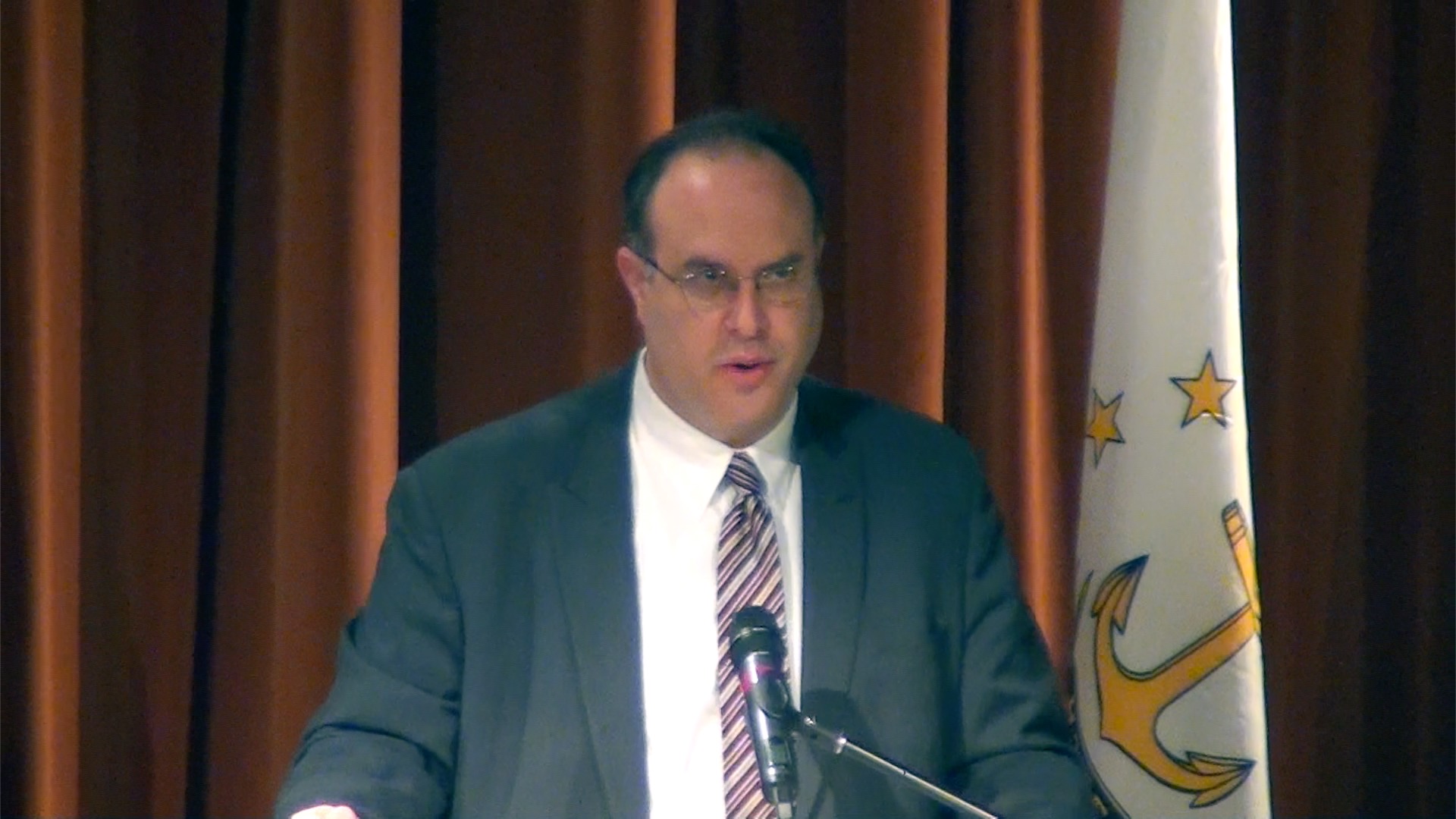
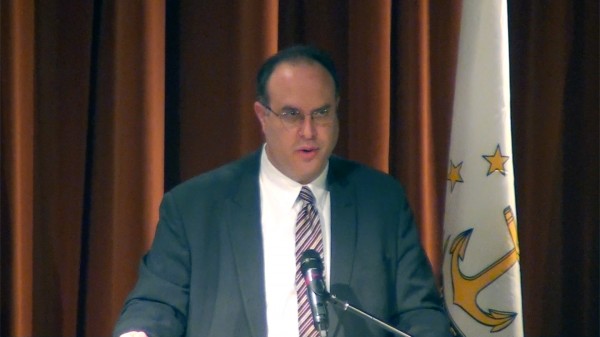




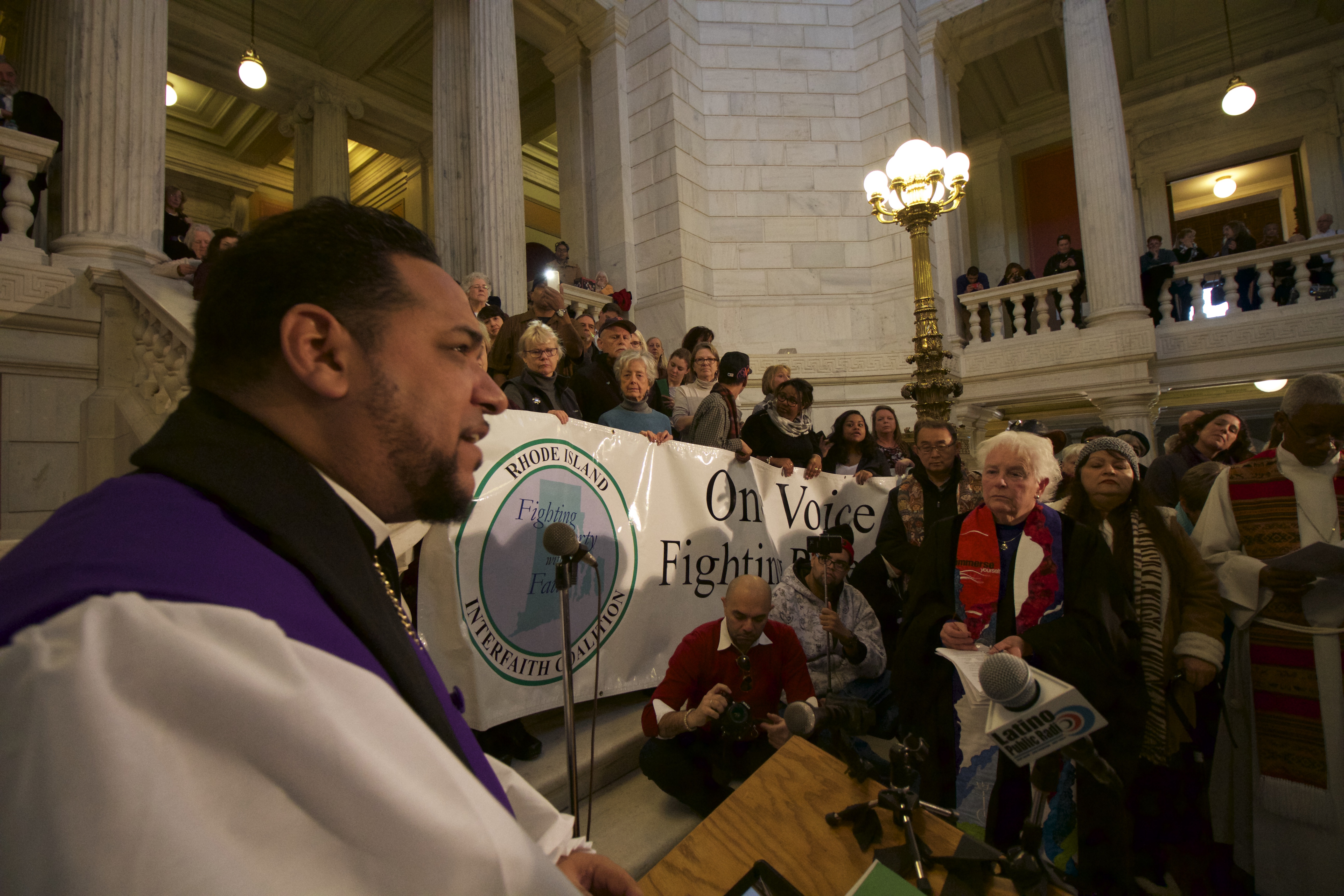
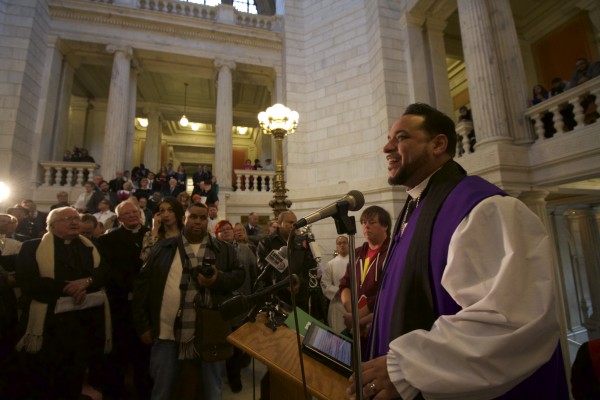
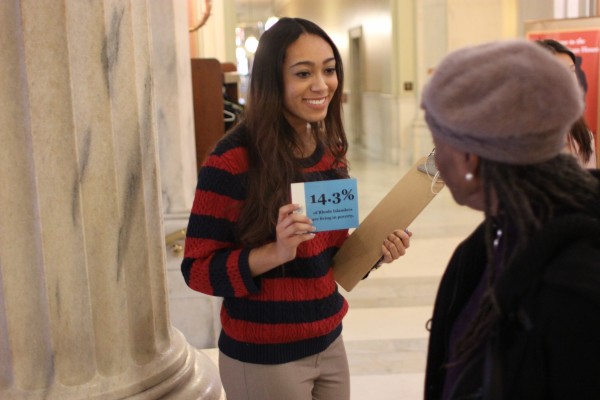 “A 14.3 percent poverty rate is the story for this year,” said Richman, “but it need not be the story for next year.”
“A 14.3 percent poverty rate is the story for this year,” said Richman, “but it need not be the story for next year.”
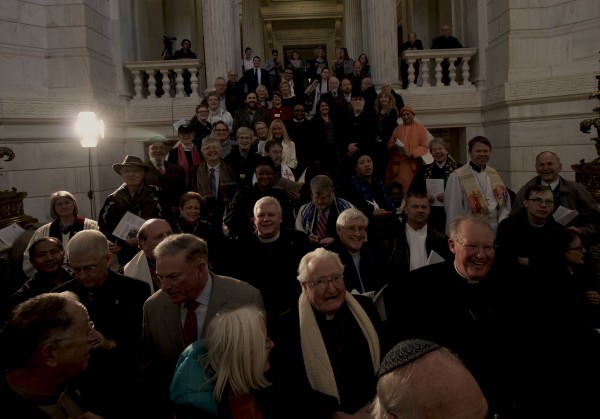 Also, as they have asked nearly every year and to no avail, the Coalition would like the General Assembly to take action to reform PayDay loans. This is unlikely as long as Speaker Mattiello continues to
Also, as they have asked nearly every year and to no avail, the Coalition would like the General Assembly to take action to reform PayDay loans. This is unlikely as long as Speaker Mattiello continues to 

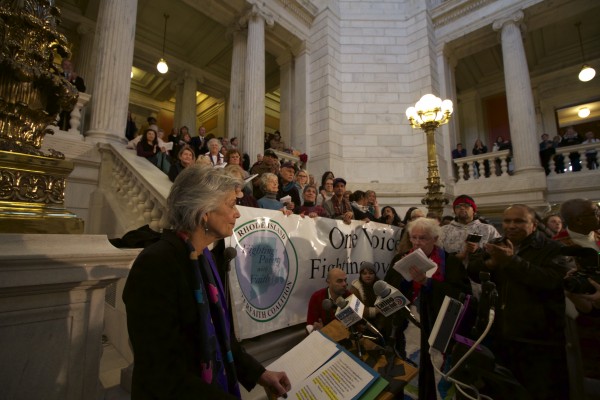
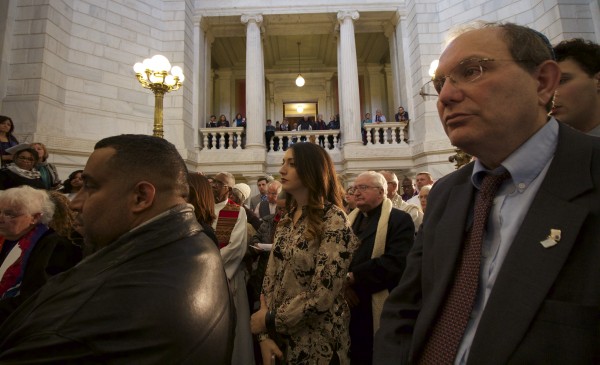
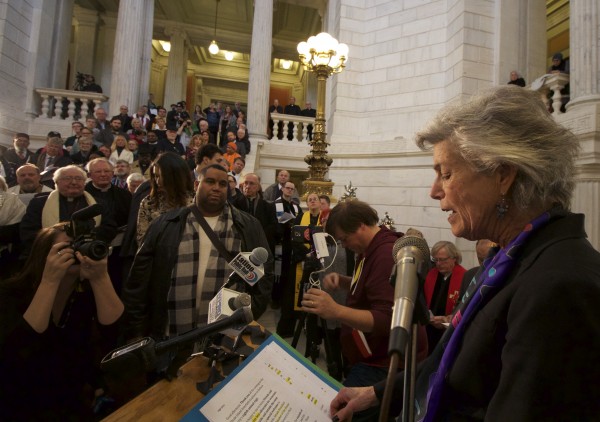
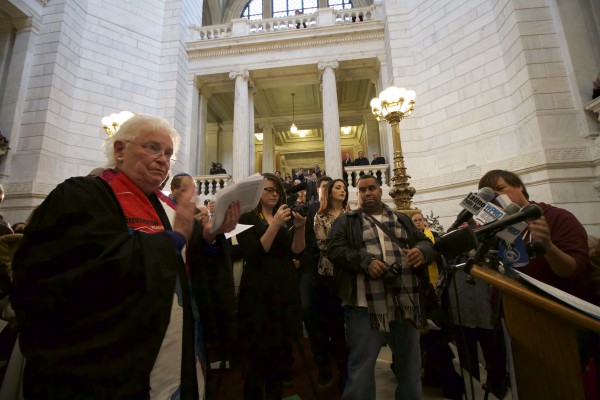
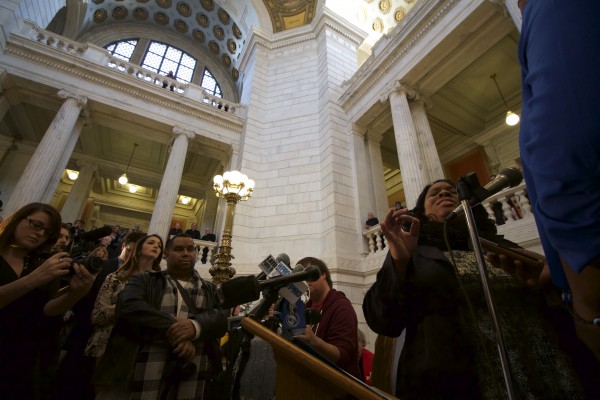
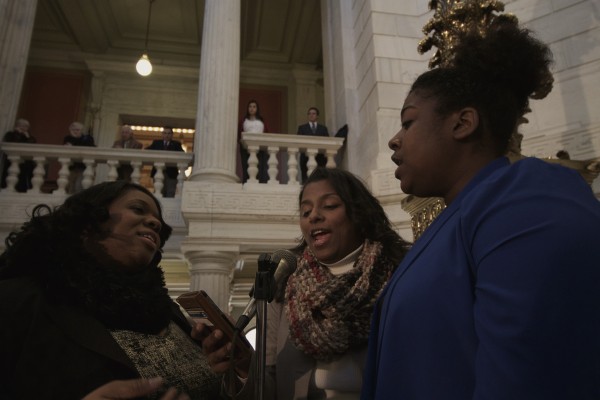
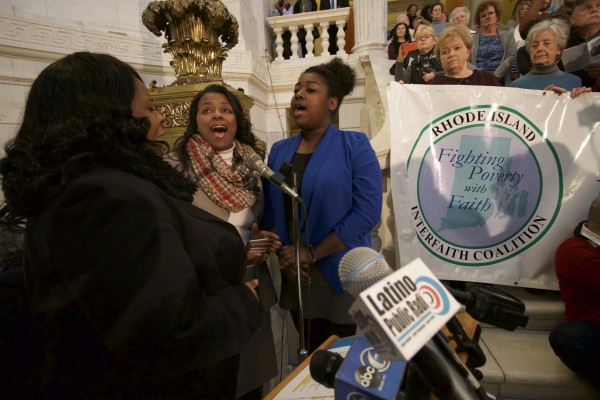



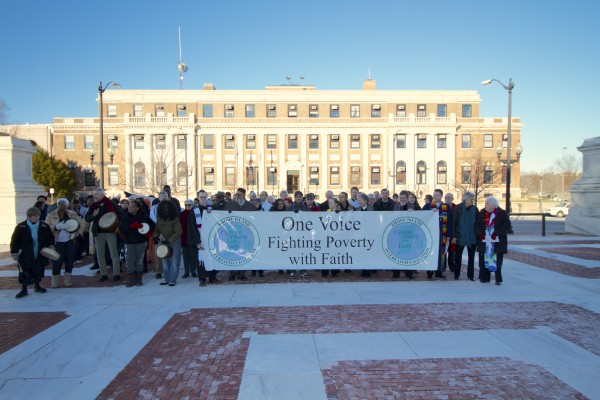

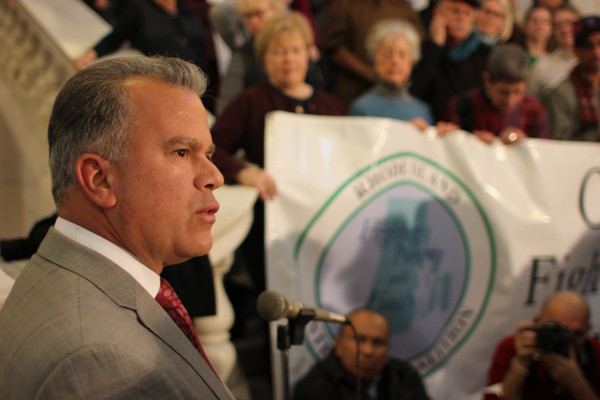
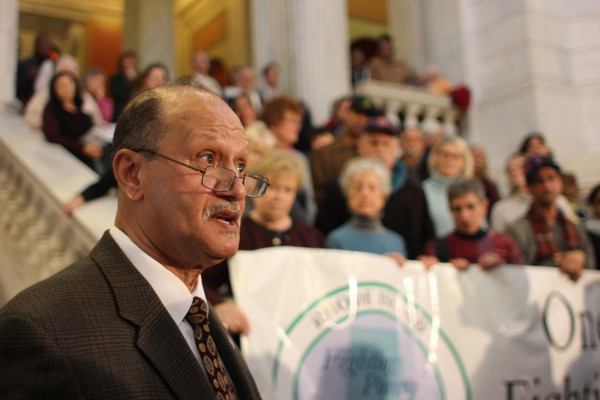
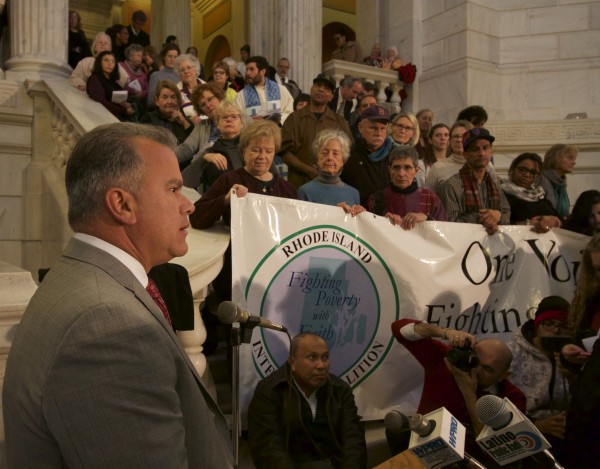

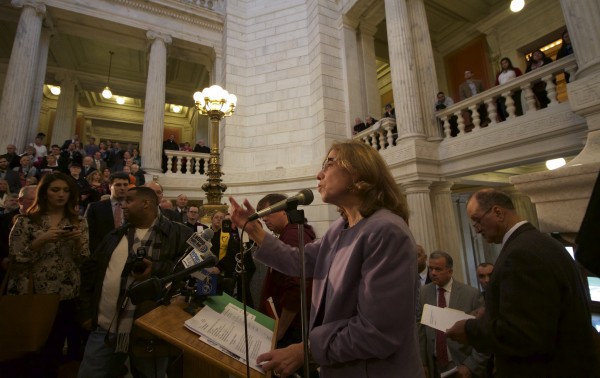
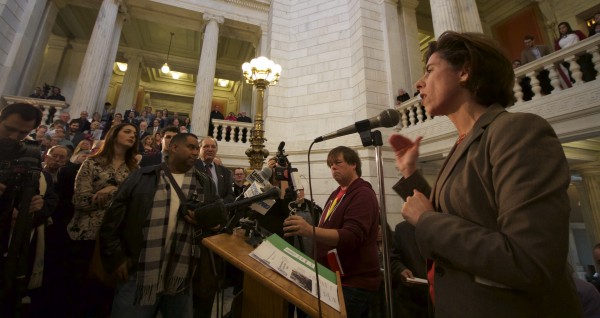
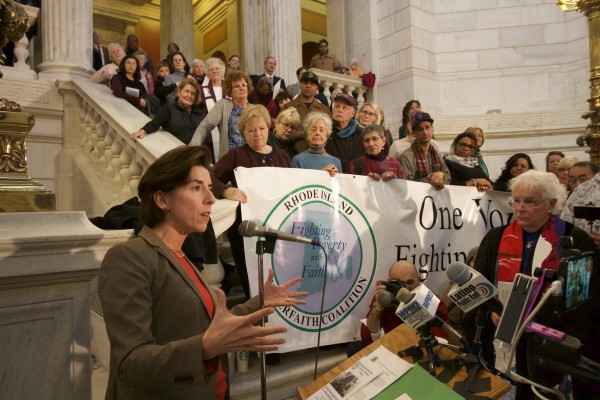
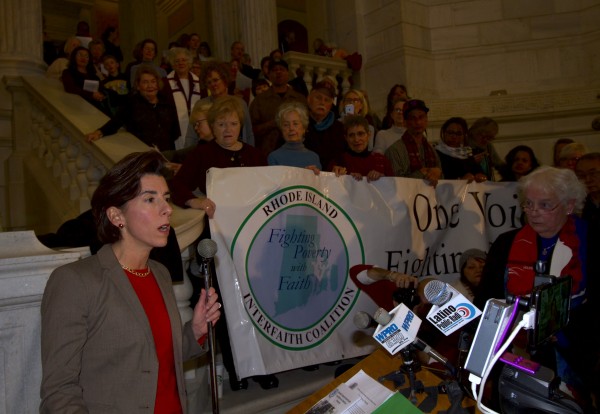
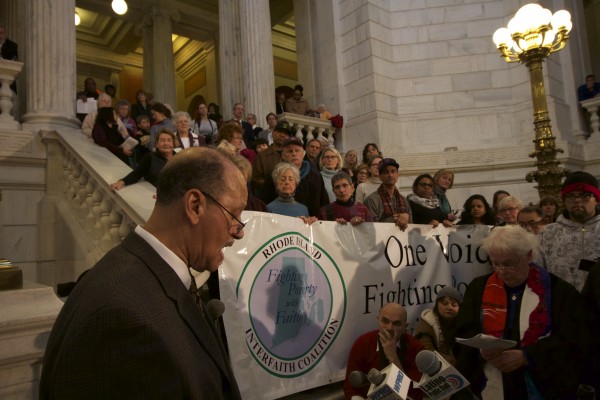
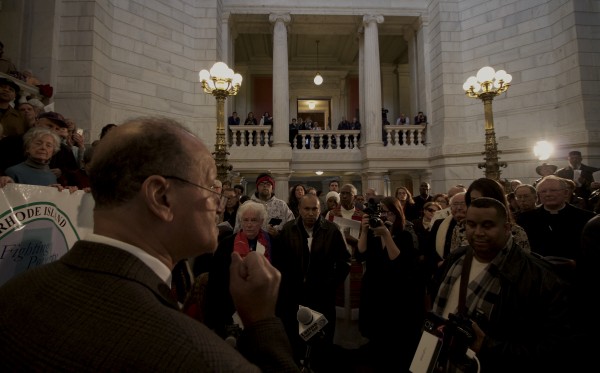
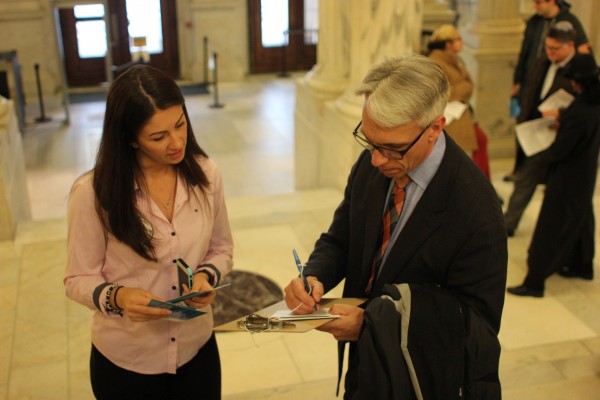
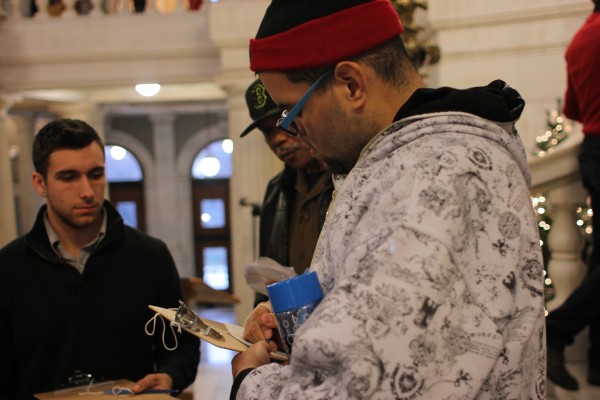


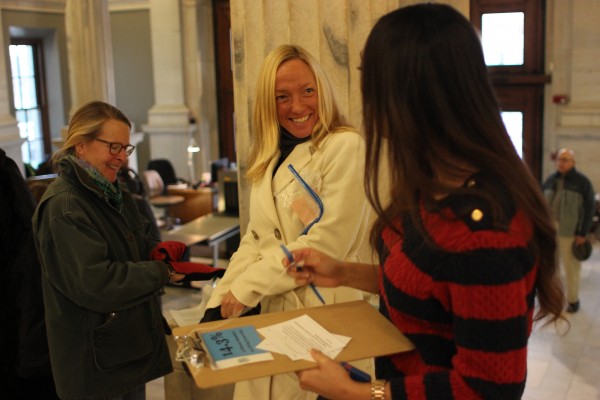
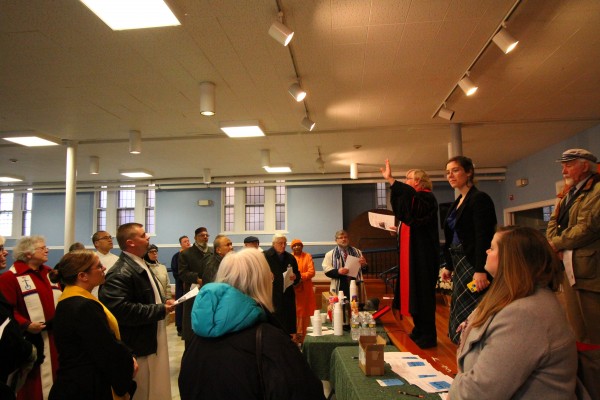
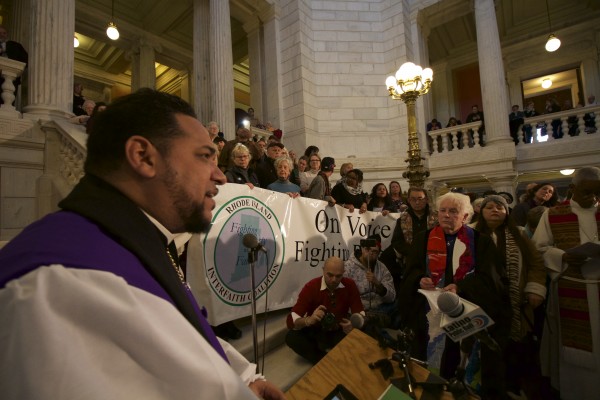


 Invisible, directed by Dio Traverso and produced by Grauman Films, LLC, tells the individual stories of male hustlers in Providence, Rhode Island and the efforts of one man and former sex worker, Richard Holcomb, to get services for the neglected population of men who engage in this type of work. The film explores issues including sexuality since many of these men identify as straight. In addition, the documentary explores the intersection of drug use and sex work.
Invisible, directed by Dio Traverso and produced by Grauman Films, LLC, tells the individual stories of male hustlers in Providence, Rhode Island and the efforts of one man and former sex worker, Richard Holcomb, to get services for the neglected population of men who engage in this type of work. The film explores issues including sexuality since many of these men identify as straight. In addition, the documentary explores the intersection of drug use and sex work.

